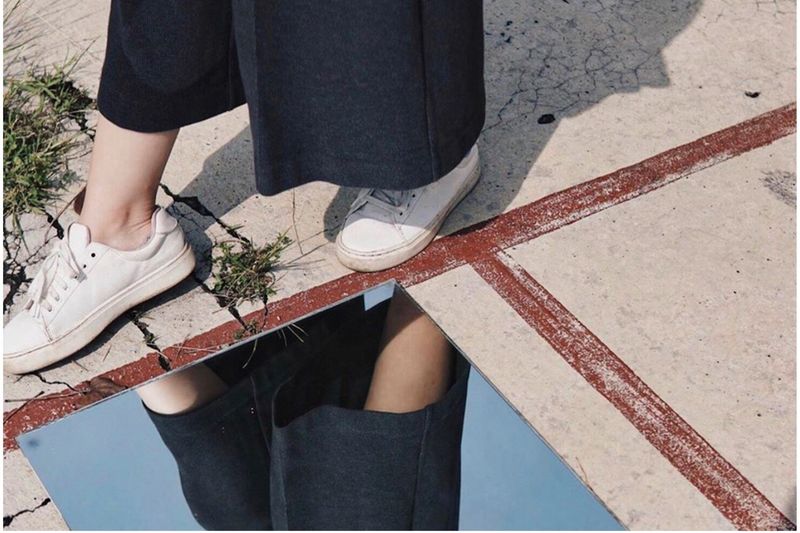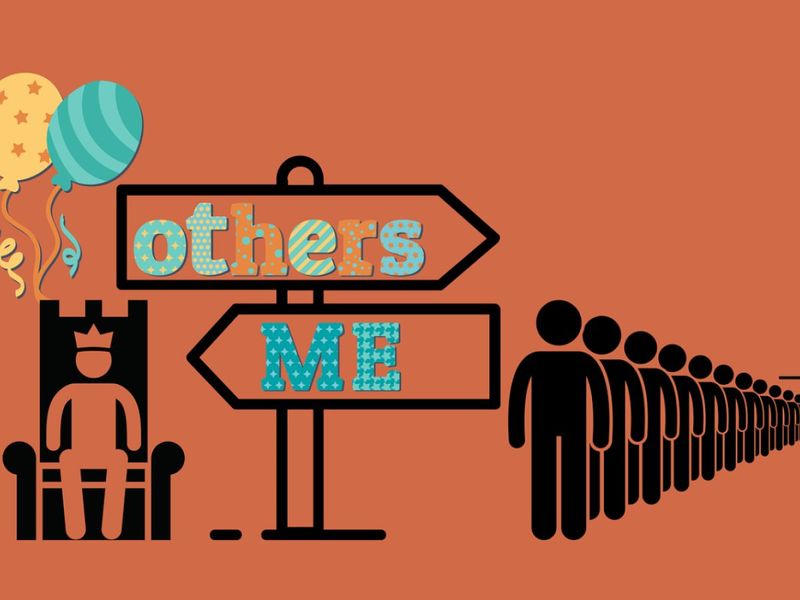19 Disturbing Signs Someone Is a Covert Narcissist
Not all narcissists are loud, flashy, or obviously manipulative. Some of them are quietly dangerous — charming on the outside, but emotionally draining behind closed doors. These are the covert narcissists — and they’re much harder to spot. Unlike the classic narcissist who demands the spotlight, a covert narcissist plays the long game. Subtle control. Hidden arrogance. Emotional manipulation disguised as “vulnerability.” And you often don’t realize the damage until you’re in too deep. Here are 19 disturbing signs someone might be a covert narcissist — and why they can be even more toxic than the obvious ones.
1. They weaponize their vulnerability

Ever met someone who always seems to have a tragic story, just when you’re about to share your own struggles? Covert narcissists are pros at this—they’ll spill a vulnerable moment, but somehow, it’s always perfectly timed to draw your sympathy. Suddenly, your problems feel small, and you’re comforting them instead.
They use their ‘openness’ as a tool, flipping the script so you’re the caretaker, never the cared-for. It’s sneaky, because you genuinely want to help, but it leaves you feeling like your emotional needs don’t matter.
Think of it as emotional pickpocketing. You hand over your empathy, and they walk away with all the attention. If you notice someone turning every heart-to-heart into their own therapy session, you might be looking at a covert narcissist in action. It’s exhausting, and it’s meant to keep the spotlight—quietly—on them.
2. They play the victim — always

You know that friend who seems to collect misfortunes like it’s their hobby? Covert narcissists wear the victim badge with pride. No matter the situation, the universe is out to get them, and everyone else just doesn’t understand their struggle.
They twist every disagreement or mishap so it looks like someone did them wrong. You end up feeling guilty even when you did nothing wrong. If you try to set a boundary, somehow you end up apologizing for hurting them.
It’s exhausting always being cast as the villain in someone else’s drama. If every conversation with them leaves you feeling responsible for their happiness (or misery), you might be tangled up with a covert narcissist. The world isn’t always against them—they just want you to think it is. That way, you’ll never stop trying to fix things for them.
3. They’re passive-aggressive masters

Ever been hit with a compliment that feels more like a slap? Covert narcissists rarely confront directly. Instead, they serve up low-key insults hidden in sweet words, or they leave you with a guilt trip so subtle, you question your own feelings.
Sarcastic remarks, forgotten plans, or that extra-long silent treatment—these are their weapons of choice. They never say what’s really on their mind. Instead, you’re left decoding their mixed messages.
This emotional ping-pong can make you doubt yourself. Are you too sensitive, or are they just incredibly skilled at psychological chess? If you’re constantly second-guessing whether you did something wrong and can never get a straight answer, you might be dealing with a covert narcissist. Their specialty is keeping you off-balance, always chasing clarity you’ll never get.
4. They give only to get

Generosity? More like a transaction. With a covert narcissist, every nice thing comes with strings attached—even if you can’t see them at first. That surprise coffee they bought you? It’s not just kindness; there’s an invisible tally being kept.
They might never say it out loud, but you’ll feel it when they don’t get what they want. Suddenly, their mood shifts. The favors dry up, and you’re left wondering what you did wrong.
True kindness doesn’t keep score, but covert narcissists do. You’ll start to notice a pattern: every act of ‘generosity’ circles back to their needs. If you ever say no or don’t repay their ‘debt,’ don’t be shocked when they remind you of all they’ve done. That’s not friendship—that’s emotional bookkeeping.
5. They make everything about them — even your pain

Ever tried to share something important, only to have it hijacked? With covert narcissists, your pain becomes a launchpad for their own tales of suffering. You open up, and—suddenly—you’re comforting them.
It’s like emotional one-upmanship, but quieter. You might leave the conversation feeling empty, unheard, or even guilty for bringing up your problems at all.
If every heart-to-heart ends up focused on how your struggles affect them, pay attention. You’re not being selfish—it’s just that your feelings only matter as much as they relate to theirs. Their empathy is a performance, not a partnership. Real support means being able to listen, not just waiting for their cue to step into the spotlight. That spotlight, by the way, never seems to leave their side.
6. They need admiration, but won’t ask for it directly

You can spot their hunger for praise a mile away—but they won’t just say it. Covert narcissists are experts at acting humble while craving validation. They’ll downplay their achievements, hoping someone will notice and shower them with admiration.
Ever heard a ‘humblebrag’ so subtle you almost miss it? That’s their jam. They might shrug off your compliment, but watch their face light up when you keep insisting.
Don’t be fooled—it’s not modesty, it’s strategy. They want the applause without asking for it, because direct attention-seeking isn’t their style. If someone always seems to put themselves down, only to light up at every reassurance, you might be witnessing covert narcissism in its most delicate form.
7. They’re overly sensitive to criticism

Giving feedback shouldn’t feel like defusing a bomb, but with a covert narcissist, even gentle advice can spark a crisis. Their armor is thin—any comment, no matter how well-meaning, strikes right at their core.
You might find yourself tiptoeing around their feelings, worried that you’ll set off a wave of sulking or silent treatment. You end up apologizing for things you didn’t do, just to keep the peace.
Criticism isn’t allowed in their world, even when you deliver it with kindness. If someone routinely flips the script and makes you feel like the bad guy after you share your thoughts, beware. This hypersensitivity isn’t vulnerability—it’s a defense mechanism. And it keeps you walking on eggshells, always second-guessing yourself.
8. They constantly compare themselves to others

Comparisons are their secret sport, and you’re always in the stands. Covert narcissists can’t help but measure themselves against everyone around them. It’s never lighthearted—there’s always a hint of envy or resentment in their voice.
You’ll hear them question why someone else gets attention or recognition, often cloaked in ‘innocent’ complaints. Underneath, it’s a deep-seated need to be the best, even if they never say it out loud.
If you notice someone who always seems bothered by other people’s successes—or who quietly tears others down—you’re probably seeing covert narcissism at work. It’s not competition, it’s insecurity wrapped in a comparison chart. And it’s exhausting to be around.
9. They thrive on guilt

Guilt trips are their specialty, and you’ll feel it every time you set a boundary. Covert narcissists can turn a simple ‘no’ into a Shakespearean tragedy. Suddenly, you’re the villain, and they’re the wounded hero.
You may find yourself apologizing for having needs, just to stop feeling so awful. They know exactly how to twist your words or actions, making you question if you’re being selfish or cold.
It’s exhausting to be the ‘bad guy’ for wanting space or saying no. If someone repeatedly makes you feel guilty for asserting yourself, it’s a sign you’re being played. Healthy relationships respect boundaries—covert narcissists bulldoze right through them, camouflaged with wounded looks and heavy sighs.
10. They’re deeply insecure — but disguise it as modesty

Modesty is charming, insecurity isn’t—but covert narcissists blur the lines like pros. They’re always putting themselves down in ways that seem humble, but you can sense the fishing underneath. It’s not real humility; it’s a clever way to get reassurance.
They’ll say things like, ‘I’m just not as good as everyone else,’ waiting for you to jump in and build them up. This cycle repeats until you’re drained from having to lift their spirits, again and again.
If you find yourself constantly propping up someone’s ego, be wary. Real modesty doesn’t demand a response—it stands on its own. Covert narcissists crave affirmation, but they’ll never admit it. You’re left wondering if you’re supporting a friend or playing emotional cheerleader.
11. They make you feel like you owe them

Favors from a covert narcissist come with fine print. You may not see it at first, but there’s always a debt to pay. They’ll remind you—subtly or not—of everything they’ve done, expecting you to repay them on their terms.
That coffee they brought last week? Those hours spent listening to your problems? Each act is a deposit in their emotional bank.
When you can’t—or won’t—repay as expected, you’re met with icy silence or pointed comments. Suddenly, you’re the ungrateful one. Healthy friendships don’t keep tabs. If you feel like you’re always in their debt, ask yourself: is this generosity, or manipulation disguised as kindness?
12. They often seem depressed or emotionally unavailable

There’s a heavy, draining vibe around someone who always seems unreachable. Covert narcissists often present as sad or disconnected, drawing you in with their mysterious sadness. You find yourself playing therapist, desperate to ‘fix’ their mood.
But here’s the catch—they’re emotionally unavailable when you need support. Your feelings are left on the back burner. It’s a one-way street.
If you constantly feel like you’re giving and giving, but your emotional needs go untouched, that’s a warning. Covert narcissists keep you hooked with their sadness, but don’t return the favor. The relationship leaves you feeling empty—and wondering if you’re the problem. You’re not.
13. They lack true empathy — but pretend they don’t

Have you ever poured your heart out, only to get a generic response? Covert narcissists are masters at faking empathy. They know the right words, but never quite deliver the genuine care behind them.
You walk away from conversations feeling unseen, even though they acted ‘concerned.’ It’s the emotional equivalent of getting a greeting card with no message inside—looks right, but it’s empty.
Real empathy means actually feeling what someone else feels, not just performing it. With covert narcissists, the show is always on, but you’re the only one in the audience. If you feel miles away after every ‘supportive’ chat, trust that feeling. It’s not you—it’s their act.
14. They rewrite history to protect their ego

Ever been in an argument where the facts just… shift? Covert narcissists have a talent for rewriting history. They’ll swear things happened differently, smooth over their own mistakes, or paint themselves as the misunderstood hero.
You start questioning your own memory because their version sounds so convincing. It’s not about lying for fun—it’s about keeping their ego spotless.
If you notice someone consistently bending the truth to make themselves look better, that’s no accident. It’s emotional self-preservation, at your expense. Being gaslit isn’t just confusing—it’s a huge red flag. Healthy people own up to their mistakes, covert narcissists prefer a rewrite.
15. They’re quietly competitive

Some people love a little friendly competition, but covert narcissists take it to a whole new (subtle) level. They need to be the smartest, most admired, or most successful person in the room—even if they never say it out loud.
You’ll notice the small digs, the not-so-innocent comparisons, or the way they light up when someone else stumbles. It’s not about winning—it’s about feeling superior.
If someone always needs to ‘one-up’ others, but denies any intention to compete, watch out. That hidden rivalry can turn relationships sour. It’s not playful, it’s persistent. And eventually, it wears everyone out.
16. They isolate you without you realizing it

Isolation doesn’t always look like a locked door. With covert narcissists, it’s the subtle planting of doubts about your friends, or gentle discouragement of your independence. Over time, your world shrinks—and you barely notice.
They might make you feel guilty for wanting to spend time with others, or act distant when you have plans without them. It’s all designed to keep you close and dependent.
Friendships and outside support fade away, leaving you alone with their influence. If you feel more isolated than you used to, ask yourself when that started. Sometimes, the walls close in so slowly, you only realize when it’s almost too late.
17. You always feel drained — but can’t explain why

Ever walk away from someone and just feel… tired, emotionally? That’s the hallmark of being around a covert narcissist. Their subtle manipulation and constant emotional demands leave you feeling worn out, but it’s hard to put your finger on exactly why.
It’s not just stress—it’s a slow draining of your energy, your confidence, and sometimes even your joy. You start to wonder if you’re just being dramatic, but the exhaustion is very real.
If interactions consistently leave you feeling worse about yourself, take that as a cue. Healthy relationships leave you recharged. Covert narcissists, on the other hand, leave you running on empty, second-guessing yourself, and searching for answers that never come.
18. The Silent Critic

Despite appearing humble, covert narcissists often harbor inner criticism for everyone around them. This silent judgment can manifest in subtle, undermining comments that leave you questioning yourself.
Their need to feel superior often drives them to belittle others in a way that’s not immediately obvious. A raised eyebrow or a sarcastic remark can linger longer than a blatant insult.
These individuals excel in the art of passive critique, making you doubt your worth while maintaining their facade of innocence. Their quiet derision can be more harmful than overt criticism, slowly eating away at your confidence.
19. Emotional Puppeteer

Covert narcissists thrive on controlling emotions, often acting as emotional puppeteers in relationships. They might feign vulnerability to gain sympathy, then subtly manipulate your feelings to their advantage.
Their charm is disarming, making it easy to overlook their controlling nature. But beneath the surface, they are skilled at using emotions to orchestrate outcomes in their favor.
Over time, this manipulation can erode your emotional autonomy, leaving you feeling like a mere extension of their will. It’s a subtle power play that can be just as destructive as overt manipulation.







